'The Favorite Sister' Is the Thinking Woman's Summer Beach Read
Jessica Knoll follows up her best-selling debut with a juicy thriller that's also a sharp social commentary.
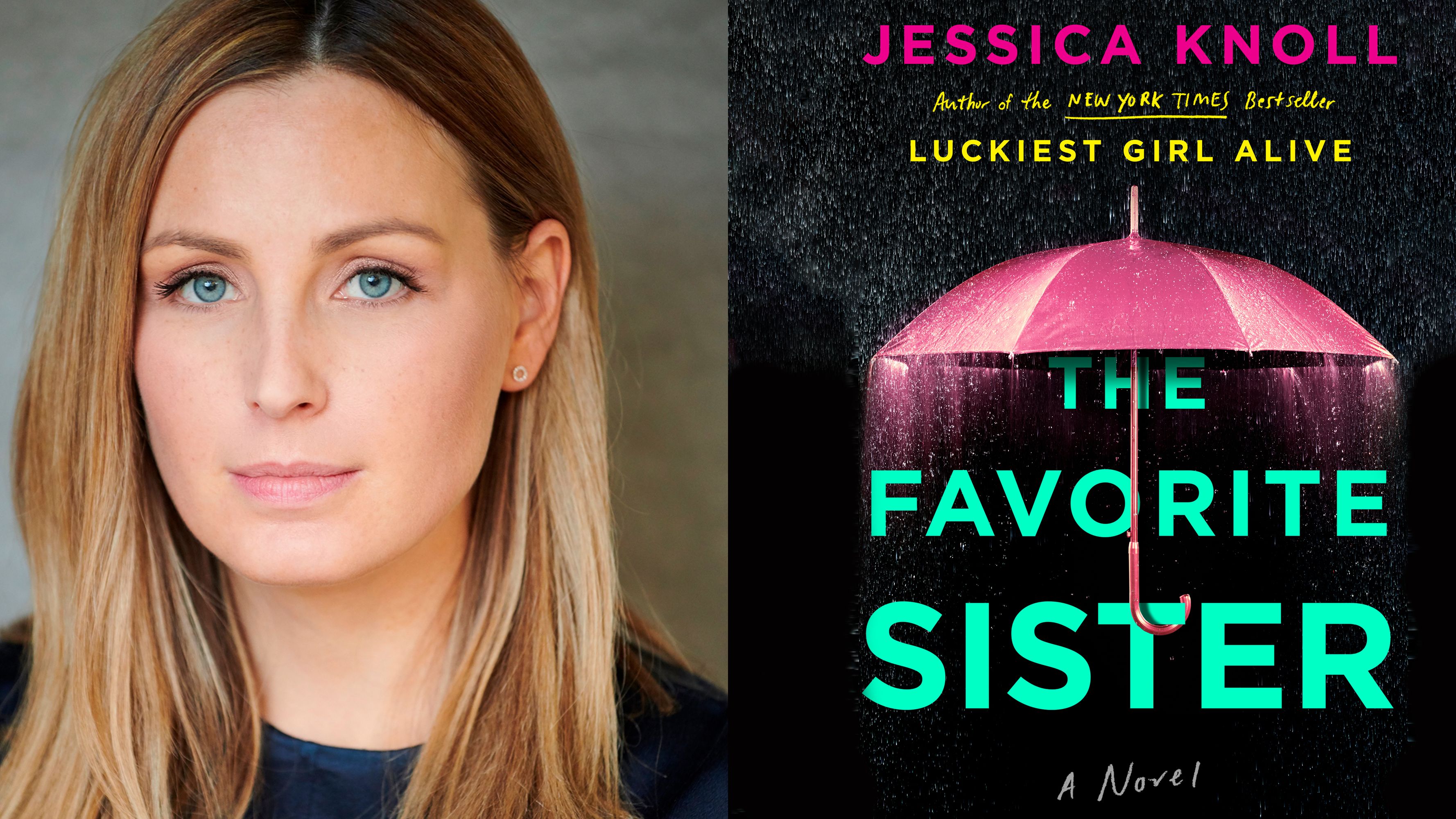
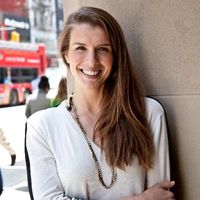
In 2015, women fell in love with Jessica Knoll's gritty, unapologetic portrayal of high school, of sexual assault, of school violence, and of trying to escape your past in Luckiest Girl Alive. Including one special reader in particular: Reese Witherspoon, who, along with Lionsgate, scooped up the film rights to the novel. All of which is to say that Knoll had a lot to live up to with her sophomore effort. Thankfully for fans of Knoll, The Favorite Sister, out today, is as good as Luckiest and then some.
The novel—a whodunnit that centers on five 20- and 30-something women who star on a fictional reality TV show, Goal Diggers, until one of them winds up dead—looks at first to be standard popcorn chick-lit. And if that's what you want to toss in your beach bag, you will not be disappointed. But appearances can be deceiving, and Favorite Sister smartly sneaks a lot of cutting cultural criticism between its covers. "It's really about women and ambition. We're allowing women to be ambitious, but only to a certain degree," Knoll says. "These are women that are leaning in, and it's kind of ugly what you have to do sometimes to stay with the pack."
Knoll sat down to talk with MarieClarie.com about the extremes people go to in order to be successful, taking the uber-popular wellness movement to task, and "the performance of womanhood in 2018."
Marie Claire: Following the success of Luckiest Girl Alive, what was your mindset going into writing this book?
Jessica Knoll: I definitely felt a lot of pressure to top myself. I felt like I created a singular voice and character in Ani [the protagonist of Luckiest Girl Alive], and I had to do that again with this book and then some.
I watch so much reality TV, honestly, so in terms of examples of the dynamic women in my life, those are kind of it. These women—love them or hate them—on shows like Real Housewives, they're cast for a reason, right? They have a certain energy. They have a certain charisma, a watchability factor. I was inspired by that, and I wanted to translate that to the page.
Marie Claire: You mention creating a singular strong voice with Ani; with Favorite Sister, there wasn't one protagonist or antagonist. There wasn't, in my opinion, really one hero and one villain.
Get exclusive access to fashion and beauty trends, hot-off-the-press celebrity news, and more.
JK: I agree with that. Initially, [the character] Brett was meant to be the heroine of the story. She was meant to be the most likable. Then, what occurred to me is that it would be so interesting and such a, I hoped, satisfying experience for the reader, for that to flip.
Marie Claire: All of the main characters in this book are an ideal of a 21st-century woman: They're entrepreneurial. They're put together. They're smart. They're of different races and sexualities. But they're all also kind of awful. Is there an underlying message there about humanity?
JK: I hear what you're saying, that they're awful in their own ways. Trust me, you're not the first person to say that to me. I don't know if I'm living on another planet than everyone else, but I just don't think they're that awful. Most successful people, like really successful people, that's how they are. That's been my experience. I think it takes a certain level of...I don't even want to say the word 'narcissism,' because that's such a negative trait.... You do have to have really sharp elbows. You do have to be really strategic. And you have to be thinking about yourself and promoting yourself in order to reach a certain level of notoriety and success. This is true of men and women. And I'm okay with it, because I'm obsessed with really successful people. I think it's so admirable.
Marie Claire: One of the main themes on the book—and there are so many themes you touch on—is female friendship. The characters are on a TV show where they're ostensibly friends. And they are, at different points in their histories, friendly with each other. They also treat each other like shit, whether it's cattiness or severe betrayal or—not spoiling anything because it's on the book jacket—murder. Do you think that society has forced women to be so competitive with each other that they can't be friends, or is it just human nature to look out for number one?
JK: It's just the nature of the beast, right? Friendships in middle school, high school, and even into college, for me, always felt very tenuous. I would have these obsessive friendships with these women in my life. If I was hurt by them, I would be crushed. I could cry for hours. No man had the ability to hurt me the way a woman could hurt me. A friend betrayal—it just cut so deep.
It always felt like things had to be maintained in a way that I don't think is there with male friendships. Alliances shift. Positions in the group shift. I don't know. There's just something there that I find so fascinating to probe. I don't think that men's personal friendships and lives are...I just don't think they're as rich as women's. There just isn't as much at stake for men.
Marie Claire: Likely because, historically, it's only been one woman allowed at the top.
JK: Definitely. Women are coming at it from a disadvantage, and they're coming from a place of oppression in a way that men aren't. I would never say...I hate the idea that women are inherently jealous and competitive and catty. No one is inherently those things. This is all a result of nurture over nature. It definitely has its roots in a patriarchal and misogynistic culture that really makes it difficult for women to be at the top, whether that's in a social situation or whether it's professionally.
Marie Claire: In addition to female friendships, this book touches on feminism, pop culture, race, sexuality, intersectionality, domestic violence, obsession with wellness culture. Each of these things could have been one book. Did you intend to write a commentary on so many different things?
JK: All those things you talked about, to me, come underneath this one umbrella that's the performance of womanhood in 2018. I couldn't not address all of those things, because they're all such a part of it. Especially living between New York and L.A., the wellness scene is inescapable. It's just a misnomer for something that's been going on for decades, which is a diet. You can dress it up and put lipstick on it....
That was something that I really wanted to take to task, because I think it's so harmful to women. I've been harmed by it. I continue to be harmed by it. I'm trying to release myself from its grasp, but it's impossible.
Marie Claire: The people in it claim that the wellness movement is positive for women.
JK: It's not. It's not. I don't know any men...I follow a bunch of wellness people on Instagram, and I can tell you right now, I do not know one successful man who stands in front of his mirror in his underwear and pinches the fat around his waist. Jeff Bezos isn't doing that. It's such a waste of time. That's really the message I wanted to get across. This is just another way to keep us down, to distract us with things that don't matter, like 10 pounds, 15 pounds, even 50, 75 pounds. It's between you and your doctor. It's nobody else's business. That was a big theme of Favorite Sister.
The diversity theme came about because I adapted Luckiest Girl Alive into a script. Then, from there, I got two other screenwriting jobs, which were adaptations of two other books. Both great books, both great projects, but not a single role for a person of color. You're just sitting there listening to these conversations about how we need to have more representation on screen, so in writing my next book—hoping that it's going to be adapted—I wanted to be sure that I'm writing diverse roles. That includes race. That includes body shape. I wanted to contribute there as much as I could.
Marie Claire: You're doing this meta thing with Favorite Sister in which you're creating a piece of pop culture that is also a commentary on pop culture, because the characters are on a reality show. For it, they've casted a black woman, an LGBTQ woman, etc. They discuss the idea of tokenism. What are your thoughts on that?
JK: The idea of tokenism came up because I was nervous to take on a black woman's story. I didn't want to offend anyone or speak out of turn. Someone gave me the piece of advice that I should try to tackle it through the lens of the person who's placing that character in the token role. So I tried to have Stephanie's biggest gripe be that Jessie [the fictional producer] was guilty of only casting her.... She wasn't only cast for the color of her skin, right? She's beautiful. She's incredibly successful. She's rich. All of these things. She also knows Jessie isn't going to have more than one black woman on this show. She's not going to have more than one gay woman. She's not going to have more than one fat woman.
I tried to make it clear that Jessie was the villain for doing that, and to think about it from Stephanie's point of view—what that would feel like, to feel like she's disposable? How that would drive her throughout the story and raise the stakes for her?
Marie Claire: Presumably, Goal Diggers is exactly the type of show that reality TV needs: A show about women who are not on the show because they're housewives, but because they're entrepreneurs; women who haven't fallen prey to the stereotypical female end-goals of wifehood and motherhood. But the show is negative for the women in a lot of ways. As a person who's obsessed with reality television herself, what were you trying to say about our country's obsession with the genre?
JK: I think it's bigger than just reality TV. It's the way culture couches anything that could be good for women. It's about how we are disingenuous in the way that we talk about helping women and supporting women. I see that a lot. I felt it, working with mostly women in magazines for several years. I had amazing mentors, and I would not be where I am without those jobs, but at the same time, working with only women comes with its own perils.
For me, the most fascinating thing is the disconnect between what we are presenting to the world and what's going on behind the scenes. That was a big theme with Luckiest. It's a big theme in this book. The idea that Goal Diggers is presented to viewers as one way, but behind the scenes, everything they encourage the women to do is completely antithetical to the values they're purporting in the show.
Marie Claire: Stepping away from Big, Important Themes for a minute, I read a lot of thrillers and I have to say, there were a couple of twists that I just did not see coming. Did you decide before you started writing which of the main characters was the murderer?
JK: I always knew that I wanted it to go down in a way where it would hinge on a character who wasn't guilty. I was interested in that. I thought it could be very interesting that one character would take the fall, even though he/she wasn't really responsible for the way things turned out.
Marie Claire: This book seems to be as much for people who don't like capital-L Literature—"Oh my god, this is fun, read it on the beach this summer"—as it is for people who maintain they would never read a murder mystery about women who are on reality TV, because it's such a social commentary. How did you approach the lighter fare while tackling big, heavy themes?
JK: I think that's just the way I consume "lighter" fair. I derive pleasure from it. I also feel like I take it seriously. I get really worked up about people being wrongly accused, or if there's a misunderstanding between the Housewives about who said what about whom—I get really into it. I just love the high-low mix, in general. I want to write books that a lot of people are going to read. I would never be satisfied writing a book that 11 people read. I want to write books that people can read and not have to think too hard about it, but also books that, for people who are willing to think a little harder about things, they're also going to take something away from it.
MORE BOOKS YOU MIGHT LOVE
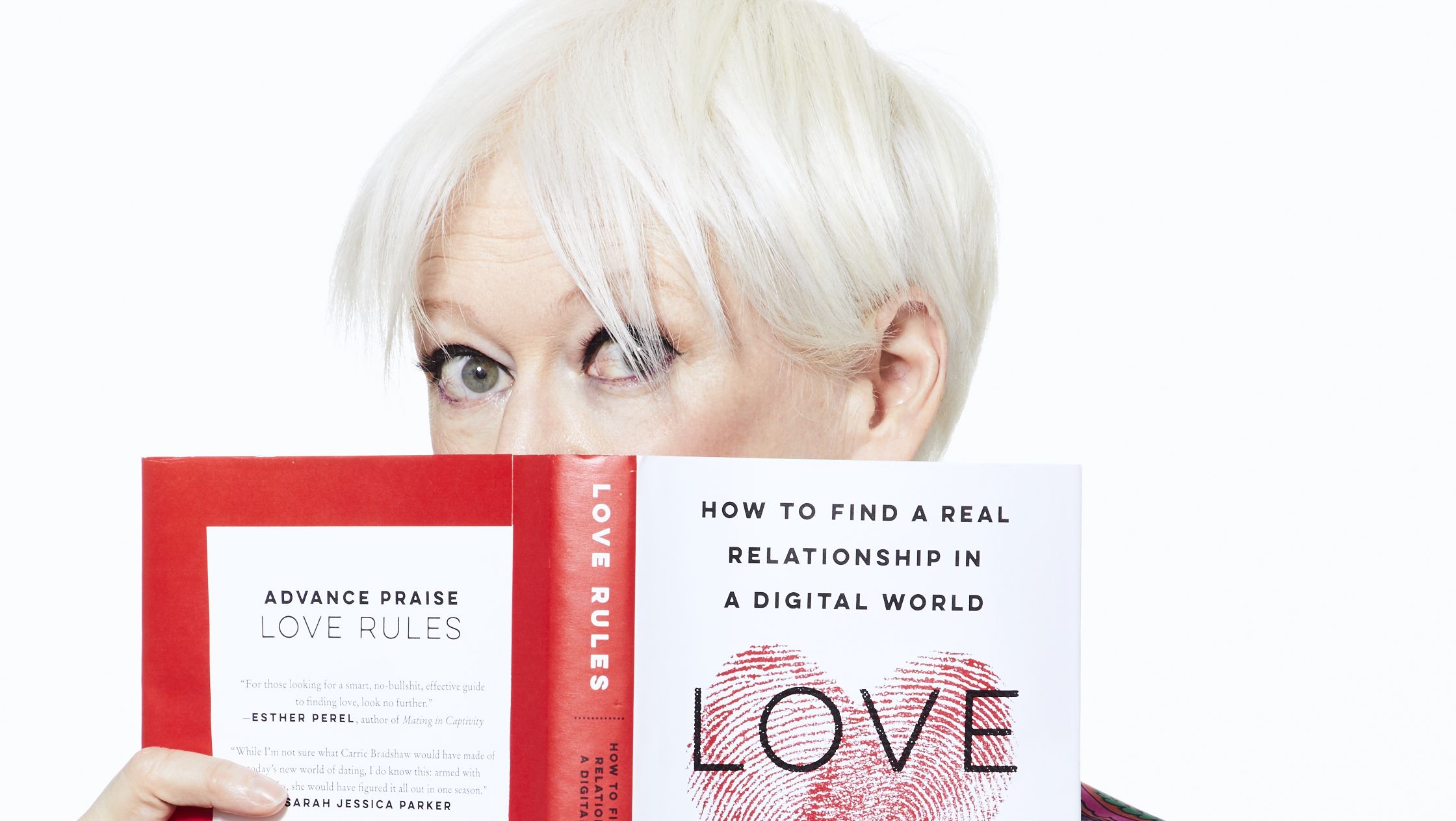
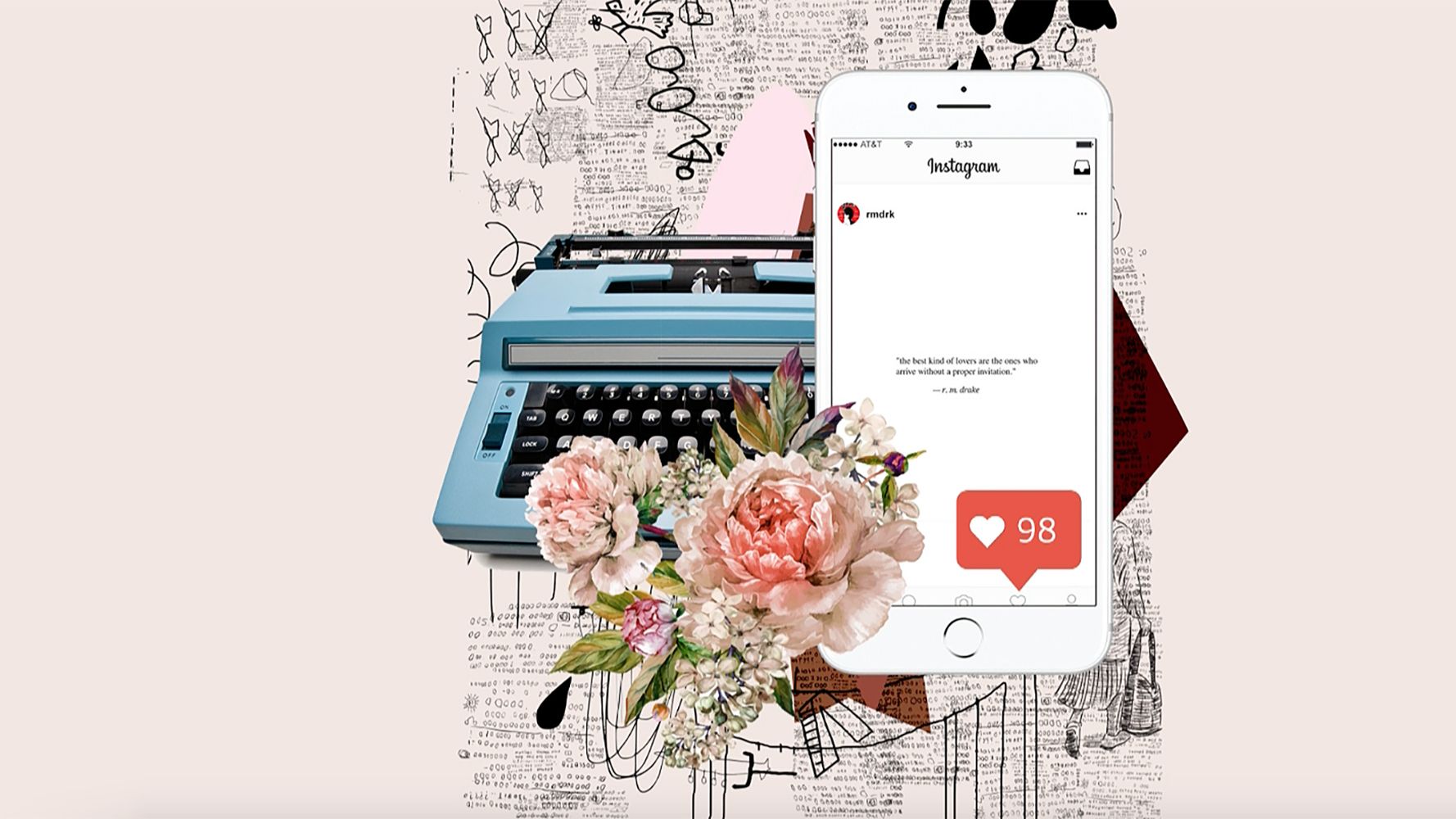
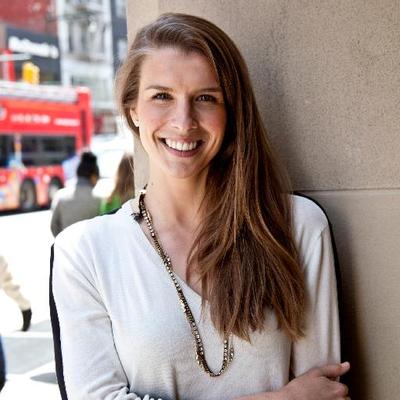
Danielle McNally is a National Magazine Award–winning journalist. She is the executive editor of Marie Claire, overseeing features across every topic of importance to the MC reader: beauty, fashion, politics, culture, career, women's health, and more. She has previously written for Cosmopolitan, DETAILS, SHAPE, and Food Network Magazine.